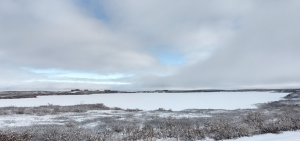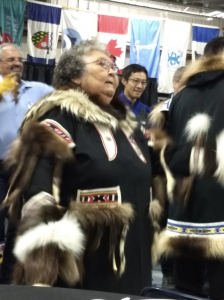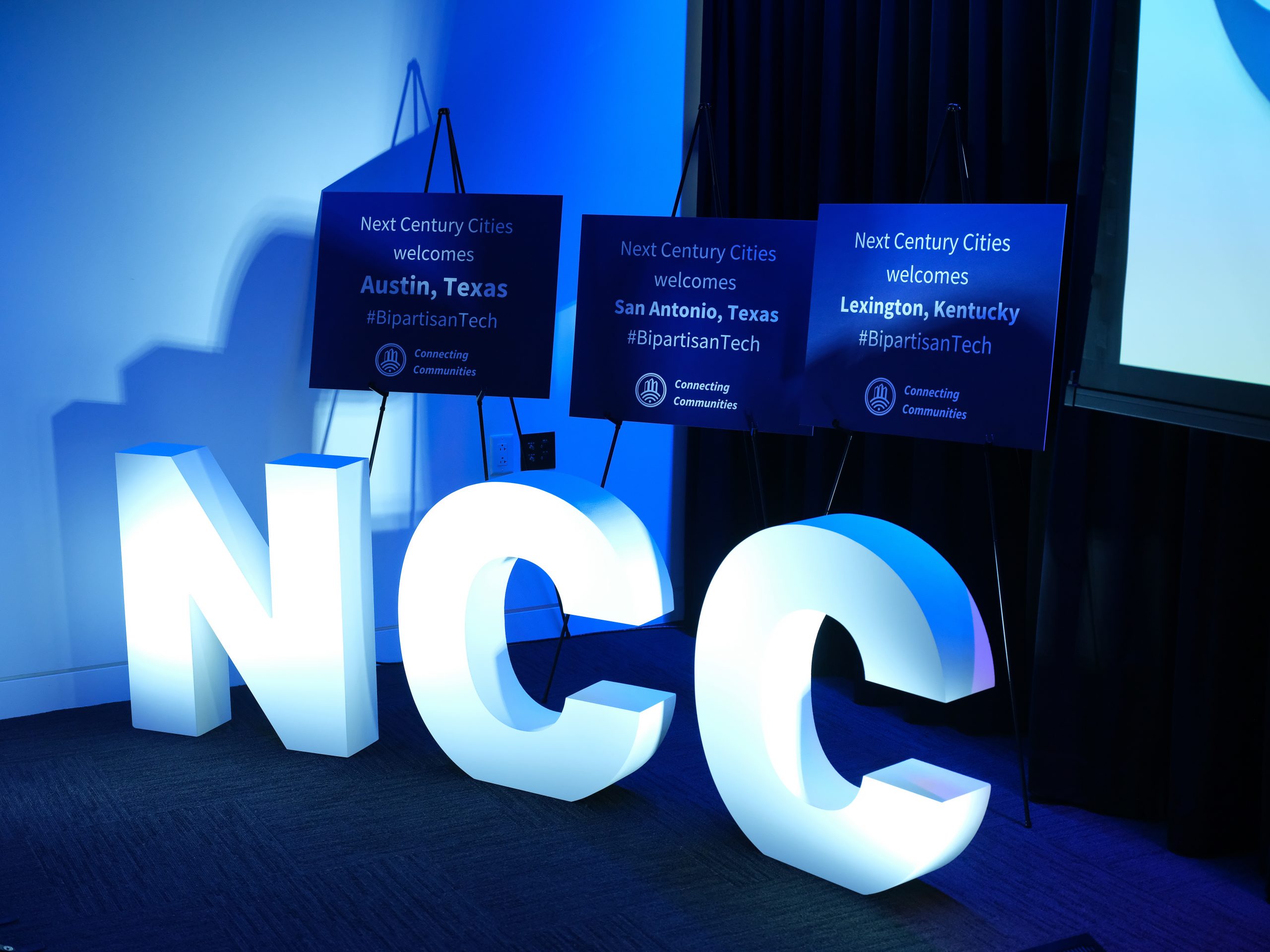In my role as Executive Director of Next Century Cities, I have had the amazing opportunity to travel across the country, talking to difference makers, innovative leaders, and creative problem solvers. Local communities are used to, and good at, finding ways to provide residents with what is needed to ensure a good quality of life. And this includes broadband access. We regularly hear from state and federal lawmakers who say they want to ensure that broadband is available everywhere, but it is the local leaders who are making it happen.
Recently, I had the great honor of being asked by the Internet Society to speak at the Indigenous Connectivity Summit in Inuvik, located in the Northwest Territories of Canada. The landscape is stark in the Arctic Circle, with few trees and plenty of cold and wind and snow. The challenges of building a network in this environment are significant. But the local folks are finding ways to make it happen.

While in the Northwest Territories, we visited the tiny town of Tuktoyaktuk, locally called Tuk. Located on the edge of the Arctic Ocean, I had the opportunity to put my hand in the cold, clear water and to imagine the generations of strong people who have lived and thrived in this harsh environment.

Returning to Inuvik, we convened our summit and heard from members of tribal communities from across Canada, mainland United States, Alaska, and Hawaii. Despite the differences in climate and topology, the challenges were interestingly quite similar: lack of voice at the federal and state level, rules that do not respect tribal tradition and experience, non-tribal people continuing to think they know what is best for the communities, and a general lack of knowledge about the ways in which each community is working for the collective good of their residents. We know from experience that there is no one solution to ensuring fast, affordable and reliable access, and joining with communities to identify and solve problems instead of telling folks what they should do is the best way to make progress.
A favorite memory of the trip was the community dinner, complete with traditional foods including elk, caribou, reindeer, whale (muktuk), Arctic char, and cloudberries. I sat with some of the elders of the Inuvialuit and enjoyed hearing their stories, their traditions, and their concerns for the future. One of my favorite moments was when I was introduced to one of the elders and was told that he was “90 years wise.”

After dinner, the local community sang, and drummed, and danced. Several athletes performed amazing feats while sharing some of the challenges in which they compete in the Arctic Games. Some of the participants helped the local community members with the blanket toss. It was amazing to see the young folks flying up to near the ceiling of the meeting space.

The Inuvialuit culture is focused on family, history, and tradition, and yet they understand that broadband access is essential. They want their children to be able to remain in the community for high school and to be able to come home after college with the opportunity to continue their way of life, and yet still be able to learn, work, and play online. And they are determined to find creative, successful solutions to the significant challenges posed by their remote location, challenging terrain, and harsh weather.
It is this resilience that I so admire. It is a characteristic of many of the cities, towns, and counties that I visit. Local folks are not waiting for someone to solve their problem, they are taking it on, working collaboratively, sharing solutions, and creating new pathways.
This is the spirit with which Next Century Cities was born. No one community has to do all the research, understand all the technical and legal aspects of bringing broadband to their communities, or keep up with pending state and federal legislation as well as everything happening at the FCC. The power is in the network – the sense of community and the generous willingness to help that exists among leaders and staff in our local municipalities.
To view the video of the conference, click here.
Deb Socia is the Executive Director of Next Century Cities

